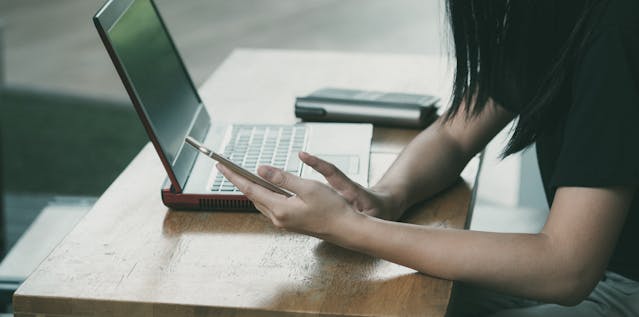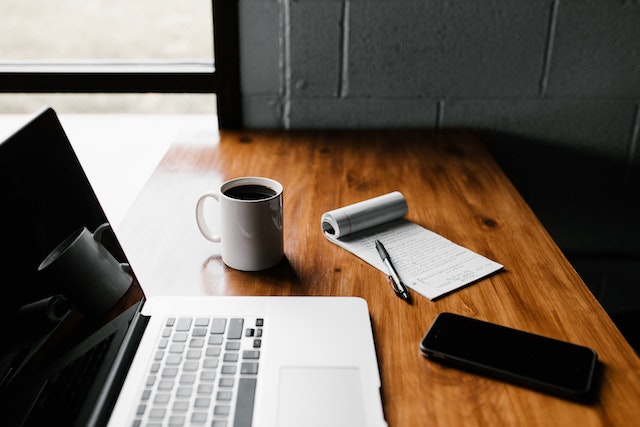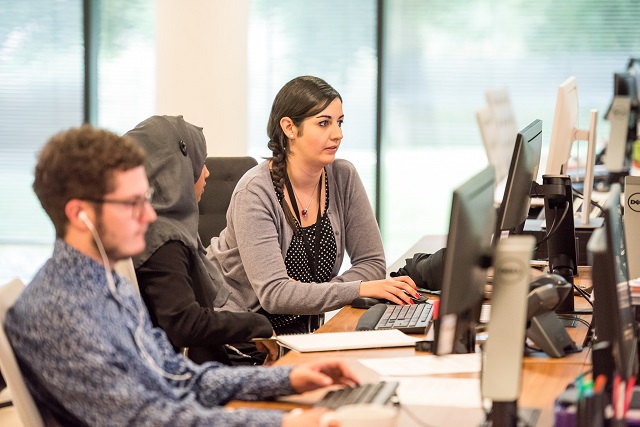New research about online misogyny and violent extremism
Tue 18 Jun 2024
Te Mana Whakaatu | the Classification Office published research about online misogyny and violent extremism in Aotearoa through a new online report and summary report.

Online misogyny and violent extremism report
Te Mana Whakaatu | the Classification Office has published new research about online misogyny and violent extremism in Aotearoa. The research looked at Aotearoa and international research, the work of the Countering Violent Extremism (CVE) team at the Classification Office and case studies of content on fringe platforms.
The Classification office published the research through the in-depth online report Online Misogyny and Violent Extremism: Understanding the Landscape (2024). They have also published a downloadable Summary Report - Online Misogyny and Violent Extremism Understanding the Landscape (2024).
The online report provides a comprehensive overview of what is known about the links between online misogyny and violent extremism in Aotearoa and how that relates internationally. It covers 5 areas:
- misogyny and violent extremism (including male supremacy, incel, and violent extremism ideologies that overlap)
- the role of technology and online platforms
- intersectionality and misogyny
- online abuse and harassment of women and girls
- government responses.
In each area there are references and suggestions for further reading. The summary report provides a briefer high level overview of key findings, gaps and potential responses.
The media release highlighted 3 key findings from the research:
- "The threats posed by incel (involuntary celibate) ideology, along with other misogynistic and male supremacist ideologies, is becoming more widely recognised.
- New trends in extremist beliefs are emerging, particularly among boys and young men. These include individuals adopting mixed and unstable beliefs as well as some who are not tied to any specific ideology but are drawn solely to violence itself.
- Algorithms amplify misogynistic and extremist content, making it easier for vulnerable people to encounter and possibly adopt more extreme ideologies."
Additional findings and trends from the research include:
- girls and women are more likely to experience online violence including more severe violence and gender-based violence, and this spans a continuum across online and offline violence
- people with intersecting identities experience intensified harm from combined experiences of misogyny with other forms of discrimination and hate including racism, religious bigotry, antisemitism, Islamophobia, sectarianism, transphobia, homophobia, and ableism
- changes in technology including AI-generated deepfake images are enabling new forms of online violence and new tools for people who use violence
- gendered disinformation is increasing with significant impacts to girls and women in leadership including journalists, political leaders and public figures
- extremist misogynistic beliefs often intertwine with other beliefs including racism, anti-government conspiracy theories, anti-immigrant and anti-LGBTIQ+ beliefs
- a growing trend of individuals who do not adhere to one ideology, noting "The lack of a clearly defined incel community in New Zealand seems to lead many individuals towards (white) Identity-Motivated Violent Extremism" (see Section 2.1 Misogyny and violent extremism - Male supremacy and inceldom in the online report)
- international research shows a significant correlation between hostile sexism, support for extremist ideologies and domestic violence
- there can be crossover online between extremist and misogynist groups and online child sexual abuse and exploitation.
The research also looks at how governments from other countries have responded to online misogyny. This includes regulatory frameworks, changes to hate offences and classifying misogynistic extremist ideologies as violent extremism. The research also looked at responses from technology platforms.
The research was prompted by trends the Classification Office had observed in their work. Chief Censor Caroline Flora said:
"Through our daily classification work we saw a common thread of misogyny in the propaganda of extremists who had committed mass violence and murder. This research exercise deepened our concern: misogyny online is pervasive; it is threatening, and it is harmful."
She also commented on one of the gaps identified in the research saying:
"There are no standard methods for collecting and analysing data on online misogyny across government agencies and NGOs."
Responding to the report and online resource, Te Kāhui Tika Tangata Human Rights Commission wrote:
"It’s clear that action and safeguards to promote and protect the human rights of all people to access the internet without being subjected to harm or discrimination are needed."
Related news
In May 2024 Minister of Internal Affairs Brooke van Velden announced that Te Tari Taiwhenua | Department of Internal Affairs would not be progressing further work on the Safer Online Services and Media Platforms. In response to the news, Vivien Maidaborn, tumu whakarae | chief executive of InternetNZ, wrote an op ed on how internet regulation is urgently needed.
The purpose of the Safer Online Services and Media Platforms work was to improve the regulation of online services and media platforms. The goal was to improve safety for all New Zealanders, with a particular focus on minimising content harms for children and young people, including online child exploitation and other forms of online violence. This work involved a public consultation. You can read our submission for that consultation and see a recording from a webinar we hosted and related resources.
Te Kāhui Tika Tangata | Human Rights Commission published the independent report, How to improve the Aotearoa New Zealand Code of Practice for Online Safety and Harms? in December 2023. The report looks at how the Code of Practice could be improved to address Te Tiriti and human rights. The Code is a voluntary code signed by Meta (Facebook and Instagram), Google (including YouTube), Tiktok, Twitch, and Twitter (now X) to guide how these tech companies manage online harm in Aotearoa. Anjum Rahman, Founder and Project Co-Lead of Inclusive Aotearoa Collective Tāhono, spoke with radio 531pi about the report and issues with the Code. Aliya 'Allyn' Danzeisen, National Coordinator for Islamic Women's Council New Zealand, was recently interviewed about digital responsibility and the part the government needs to play.
The 2023 report from the World Internet Project (NZ) found that 61% of people believed social media companies should be more strongly regulated than they are now. See media outlet The Press's article Most Kiwis spending at least 5 hours a day online but trust in social media low.
Related media
Internal Affairs job cuts will lead to more Kiwis being scammed online, union says, RNZ, 19.06.2024
Dozens more jobs axed at Department of Internal Affairs, Stuff, 19.06.2024
CHAT: Minister refuses to guarantee jobs in child exploitation area, Duncan Garner, 19.06.2024
30,000 websites to be blocked over child sex abuse material, RNZ, 19.06.2024
Improvements to stopping Digital Child Exploitation, Beehive media release, 18.06.2024
Terrorism and violent extremism research funding cut by two-thirds, RNZ, 05.06.2024
Media oversight one-stop-shop stopped, RNZ, 19.05.2024
Alarm bells sound over online misogyny, extremist content, One News, 13.05.2024
Government swerves away from tackling online ‘industrial-grade’ violence, The Post, 12.05.2024
Internal Affairs scraps ambitious plan to clean up the internet, The Post, 10.05.2024
Abuse of MPs increased to 98% in 2022 - study, RNZ, 17.04.2024
The rise and rise of intolerance in the online world, The Press, 29.03.2024
Regulation needed for online media giants, Waatea News, 30.11.2023
Indigenous women share racist online experiences at conference, Te Karere TVNZ, 29.10.2023
Amokura Panoho | Member of Te Pūkotahitanga, Waatea News, 25.10.2023
The harsh and unregulated reality of online safety for indigenous women, NZ Herald, 25.10.2023
'Rampant' increase of digital harm on indigenous women, conference told, Stuff, 25.10.2023
Image: Porapak Apichodilok on Pexels









